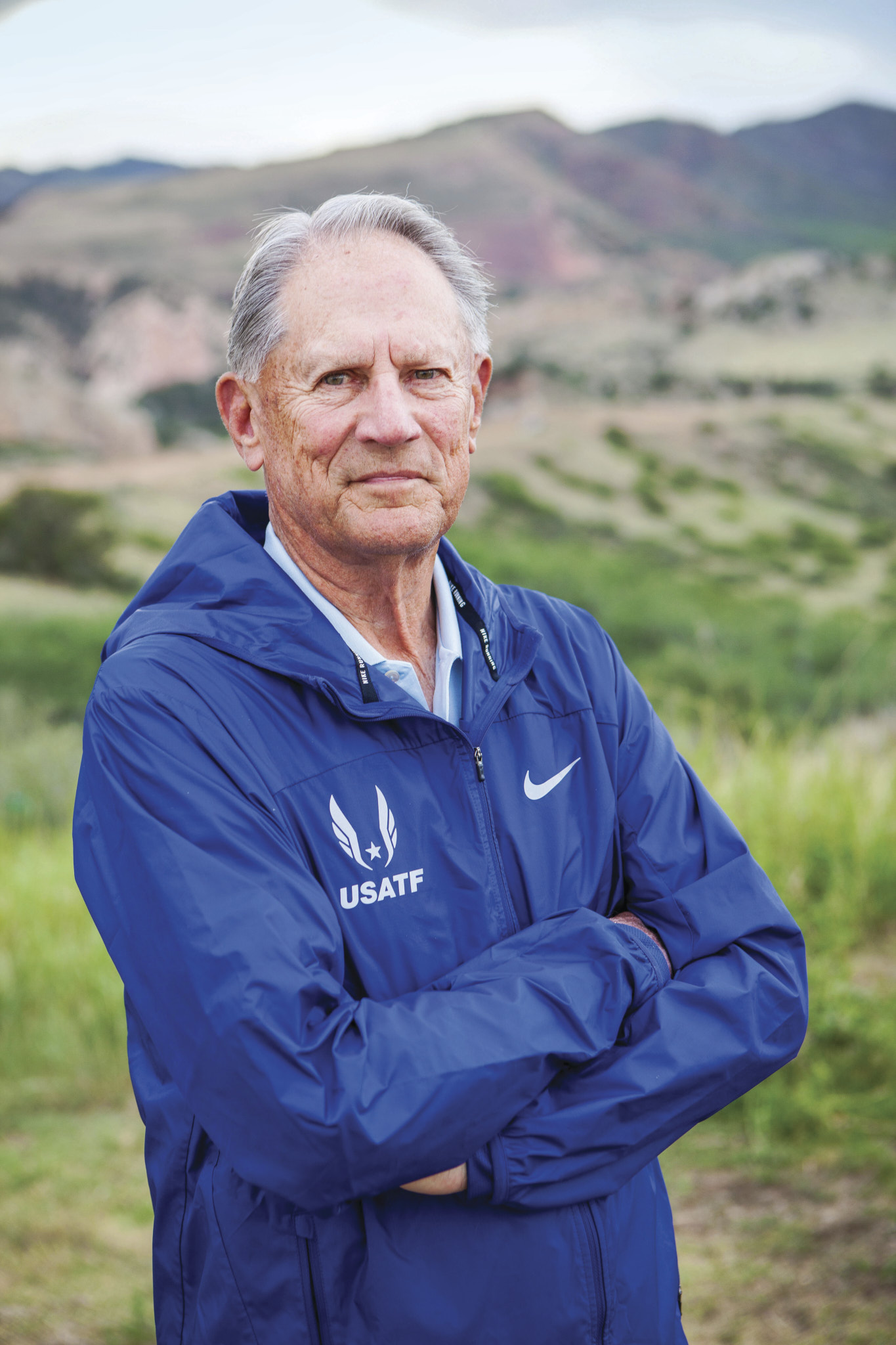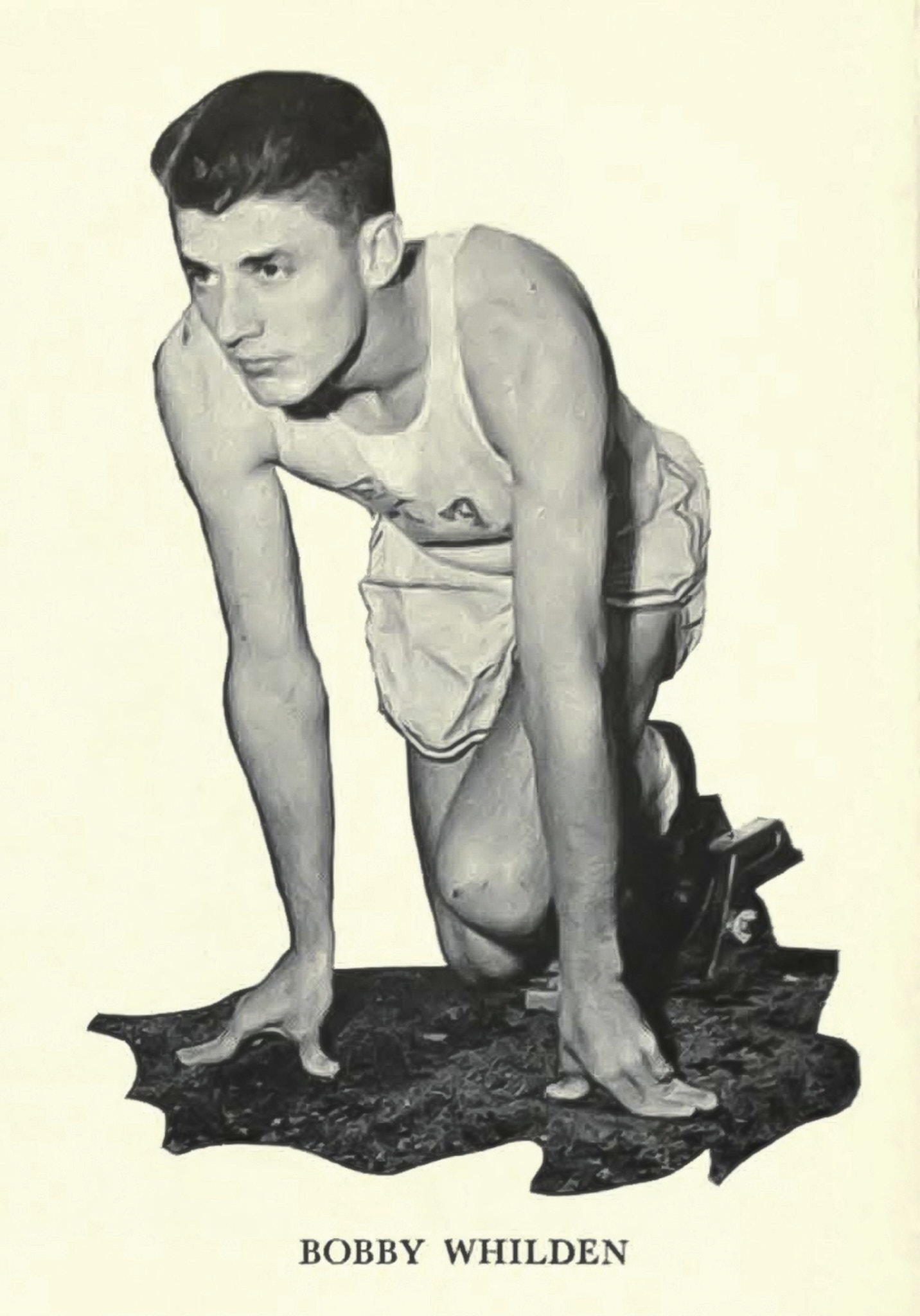This Longhorn Racer Isn't Stopping Anytime Soon

Sprinting off the block on May 22, 2022, Longhorn Bobby Whilden raced down the track, despite several hamstring injuries. He not only won the race handily in 15.83 seconds; he set a new 100-meter dash record at the National Senior Games. It’s not the first race the spry athlete has run—or the first record he’s broken. Whilden, BA ’57, LLB ’60, has been at this a while.
Whilden, 87, came to UT in 1953 as an arts and sciences student and sprinter on the Texas Track and Field team, where during his time the team broke two world records—in the 440-yard and 880-yard relays. “You’re kind of always sort of shooting for the records,” Whilden says. “And when you finally get one, it’s very gratifying. When you get them with teammates, it is very meaningful. [You] just kind of never forget it. It stays with you.”
It was in college where he received the nickname of “Road,” short for “roadrunner,” after a Kappa Sigma pledge brother made the connection at the movies, when a bird zipped across the screen. “Whilden, that’s you!” he remembers his brother saying. “There you go!” In relays, he was often called upon to channel that roadrunner energy as the anchor. “I like running fast,” he says. “I just always had the gift of speed.”
Whilden’s competitive spirit is fierce—probably a big reason why he hasn’t quit the track, despite his age. He competes in races under World Masters Athletics (“Kind of like Senior Olympics,” he says) in the corresponding age events for the 50-, 60-, 100-, and 200-meter solo run. His mind is sharp and quick as he recites records from years ago, specific months he competed in and where, and even the story of the time he walked his then friend, now wife home from the pizza place on The Drag. The couple first met after Whilden pulled his hamstring in the 1956 Olympic trials in California. It was devastating at the time, as he had made the finals for the 100- and 200-meter races; however, it seems as though everything worked out, according to the runner. He would have had to drop out of college for a semester or two to train and compete for the games, hosted that year in Australia, and he may have never met his wife. Decades later, he can still hear her cheering and hollering from the sidelines at nearly every single one of his meets.

After UT, Whilden traded in his spikes for dress shoes and starched suits but stayed on the Forty Acres. He’s spent his career specializing in corporate law, but he kept feeling called back to the track. He wondered, what was he still capable of?
And so at the age of 39, he began training again. Whilden’s feet have hit the track all over the country: Texas, Colorado, Iowa, New Mexico, California, Minnesota, Utah, Pennsylvania, Ohio, Florida, New York, Indiana, Wisconsin, Massachusetts, South Carolina, and Georgia. He has represented the United States in track meets overseas, including a six-week stint in Sweden, Norway, and Denmark, and a few meets in Spain.
These days, he’s still training three days a week. On a recent morning, he ate a sweet roll and drank a glass of orange juice before the sun came up. He headed to the local high school track and ran 150-meter intervals, walking off the steam after each go. He guessed he did the count eight times; about the length of 11 football fields back-to-back.
“It’s not like I just love to run,” Whilden says. “In fact, if I was not running in competition, I probably wouldn’t run at all.”
There’s no doubt the 1998 Hall of Honor recipient is healthy, strong, and capable—but there have been some harrowing injuries. His son, Robert Whilden, BBA ’93, spoke of his most horrific injury, when he tore his Achilles in 2007 during a workout, as if the snap of Whilden’s tendon reverberated around the world. His doctor referred to the possible surgery as “sewing together a wet noodle.”
Not surprisingly, Whilden viewed that injury as only a minor hiccup in his path. He saw the best doctors in Houston, all of whom told him the news he didn’t want to hear: that he would never run again. But he didn’t give up, eventually making his way to Colorado Springs to a doctor who specialized in Olympic-grade injuries and ailments. “If I thought you were anywhere near as old as your birth certificate says you are, I would probably agree with them,” Whilden remembers the doctor saying. He then gave the born runner a 50-50 chance of being able to do what he does best.
Whilden prevailed, and these days, his biggest enemies are the lack of reasonable contest. “I thought about quitting because, frankly, it’s gotten to where I do not have any competition anymore,” he said.
“All my friends say ‘Bobby, what’s the world record for the 90s?’ and I say “I don’t know if I can hang when I’m in my 90s. I say that, but I’ve gotten pretty close to it right now,” he added with a chuckle.
As Whilden ascends to the highest level of age group, the number of runners dwindles exponentially. Frankly, based on the way the runner—who has stood at number one for the 100-meter world record at his age group for the past 15 years—has handled obstacles in the past, he may be unstoppable.
CREDITS: Courtesy of Robert Whilden, Cactus yearbook





